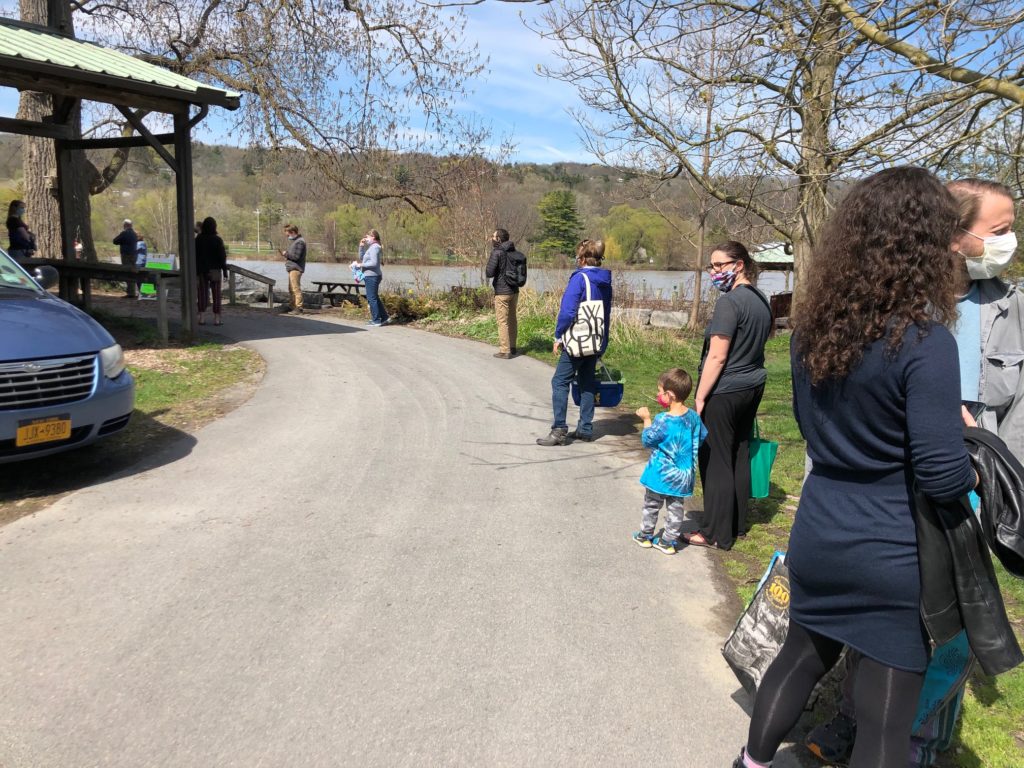Mask Necessary
Last week I wrote about the New York State mandate to wear face masks in public when a safe distance of six feet is not possible, such as a grocery store or crowded parks. I wrote about traveling alone in Japan last year and being unnerved by one encounter with a man wearing a mask.
Masks do hide facial features, expressions, and intentions of others. They also make me feel like hiding mine. In a mask, I can slip inside my anonymity. I can preserve the energy it would take to interact with strangers or even friends—they can’t see me smile anyway. In fact, I don’t even have to look at them.
For a person with a lifelong habit of checking in with others, this new outlook from behind the face mask has saved me a lot of social energy. It’s also made me feel lonely.
This week, I’ve thought a lot about mask wearing. Not only what it contributes to public health during this pandemic, but also what it means.
Wearing a face mask does not necessarily protect you from other people. It protects other people from viruses you might be carrying. While, say, buckling your seatbelt (another legal mandate) is a measure you take to protect yourself, wearing a mask is a measure you take to protect your community. Or, more specifically, individuals in your community.

When you put on a face mask, it’s like buckling someone else’s seat belt.
Looking back on my time in Japan last year, I realize that the common mask wearing I witnessed demonstrated the community-centered approach Japanese take to society. I’m feeling ill, the mask says. I want to protect you.
In Tokyo, that community-centered approach is necessary. I rode trains that were so packed with bodies, I worried I wouldn’t be able to reach the door at my station. The station stops are not very long, either, another sign of the community ethos: people move fast because the train has to stay on time to provide service for other people.
In a big city like Tokyo, a mask does protect others physically and sends a signal: give me space today. It also gives the wearer a layer of psychological protection, a tiny room to dwell in alone in a place where physical solitude is rare—and, with so many people, so is on-street recognition.
The problems are inverse in a small town such as Ithaca. Solitude can be the norm. And it’s hard to go out in public without recognizing someone. As Bill said yesterday, in a small town, you can wear a mask so people don’t know who you are.
Some Americans resist wearing masks. Nationally, the “to wear or not to wear” issue is starting to divide people down political lines we’ve seen before. Liberals, who are more into joining together, are into it—and letting everyone know on social media. Some conservatives agree that face masks mitigate the spread of disease, but say they will not become a normal part of American culture. Others interpret mask mandates, as well as coronavirus-related restrictions on commerce, as threats to democracy.
Still others are taking it personally. In Flint, Michigan late last week, a man shot and killed a Family Dollar store security guard who wouldn’t allow a companion inside the store without a mask. That’s the opposite of the “do this to protect others” ethos of the mask.
I agree that there’s something alien and alienating about wearing a mask among other people wearing masks. I hope this is not the way I will move through my community and through the world for the long term. But it’s good for us, together, now. Every time I put on a mask these days, I think of someone I want to protect and carry them in my heart as go out alone.